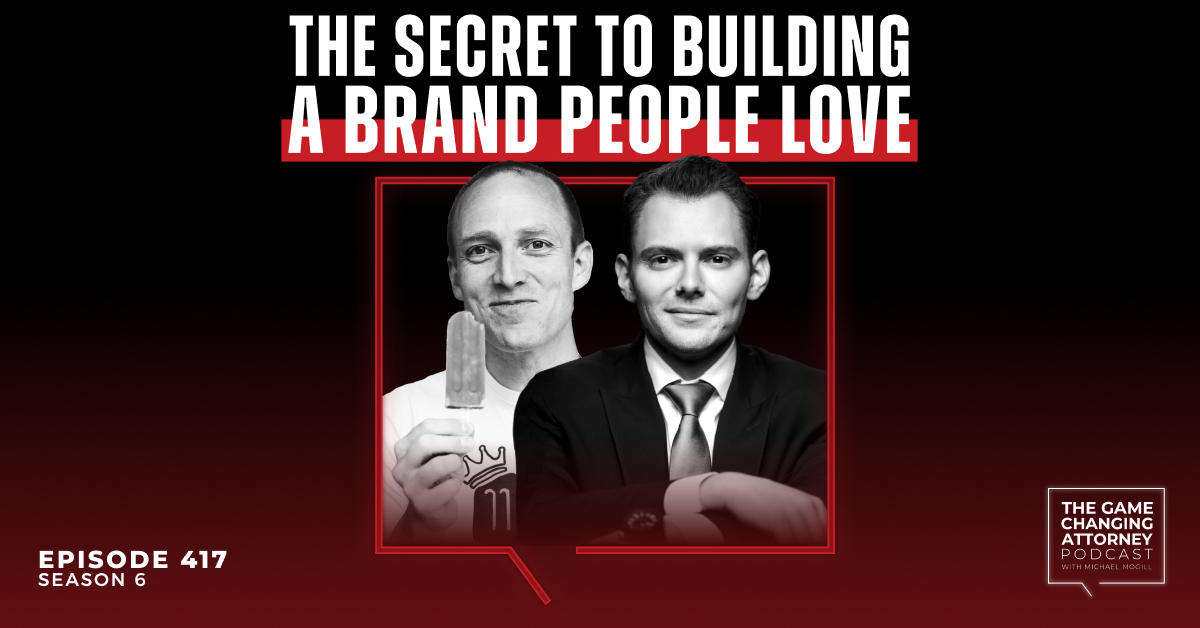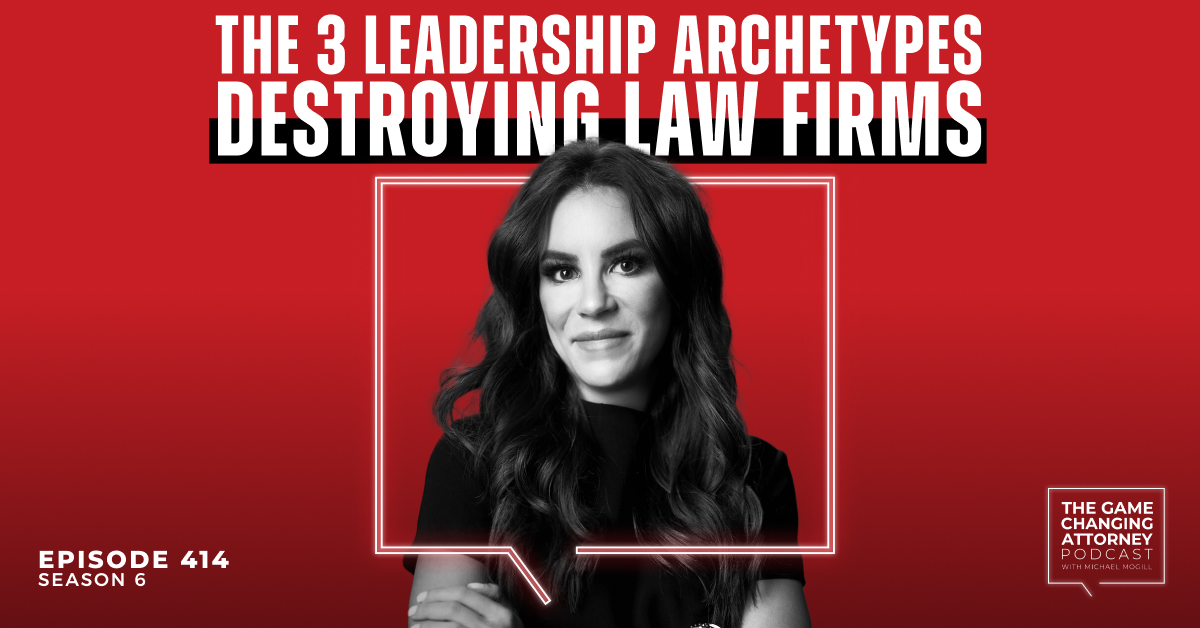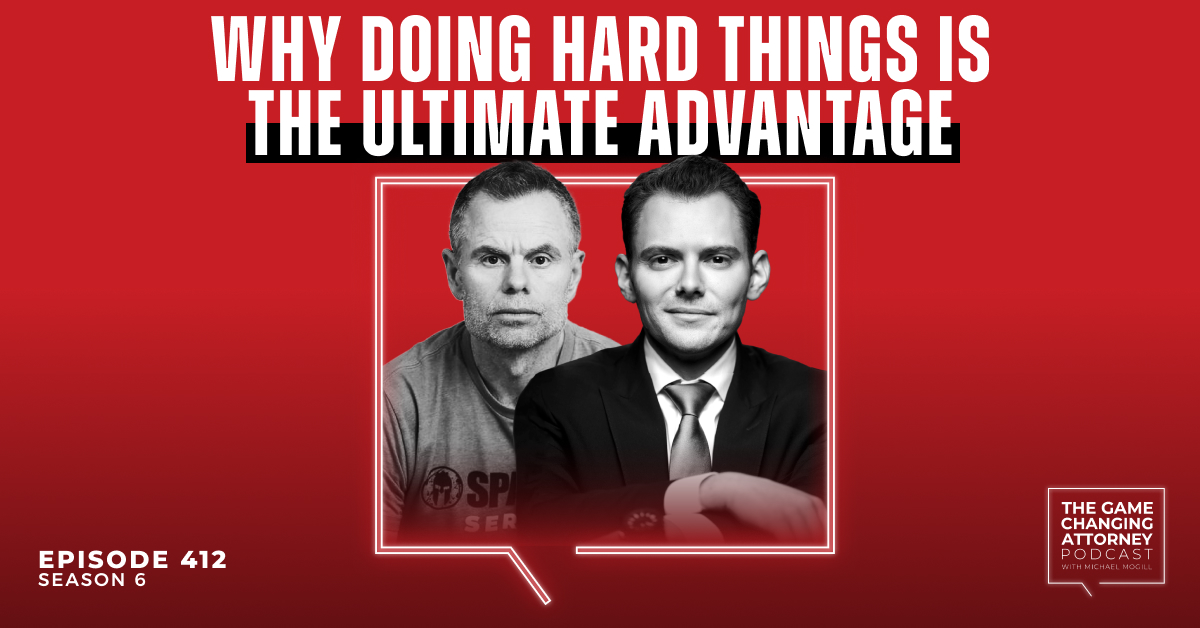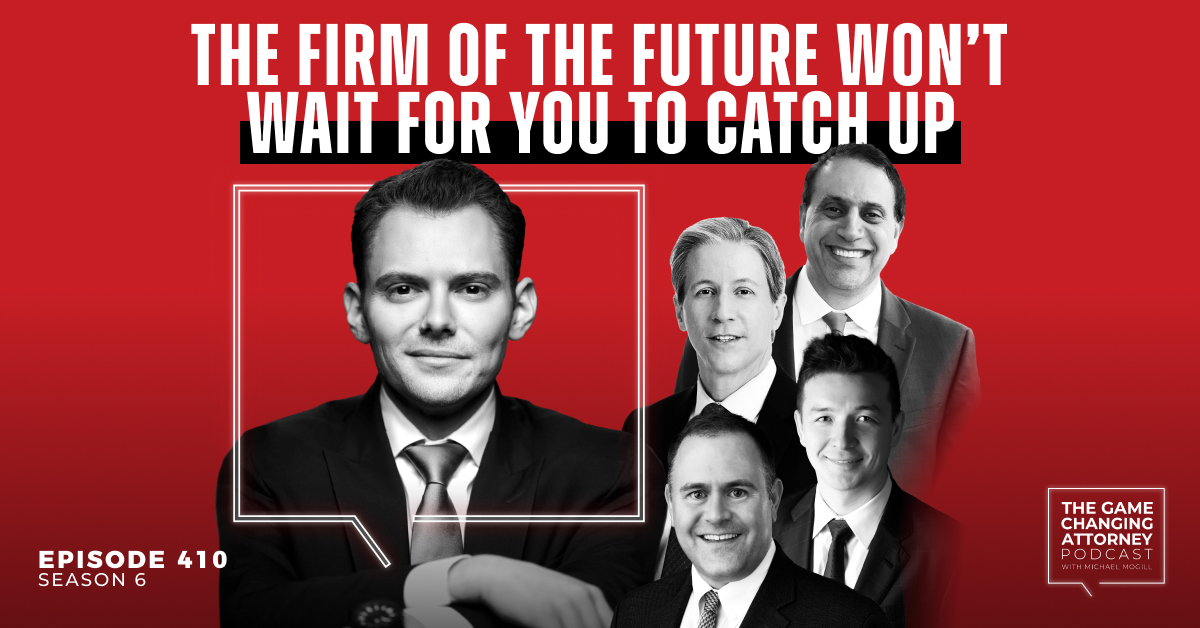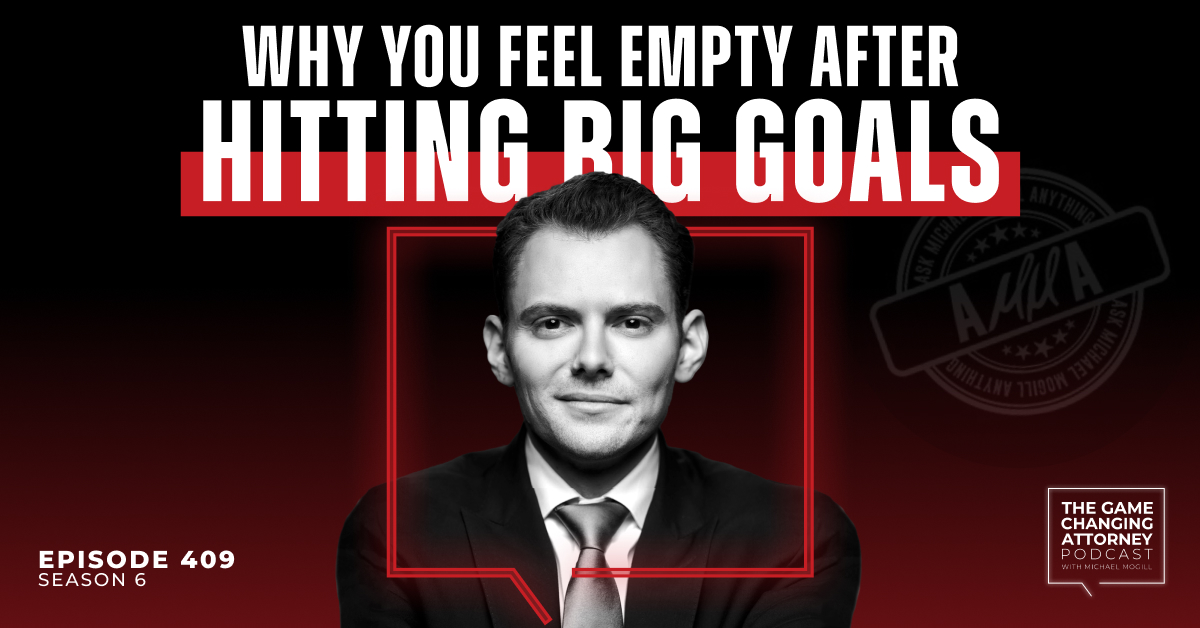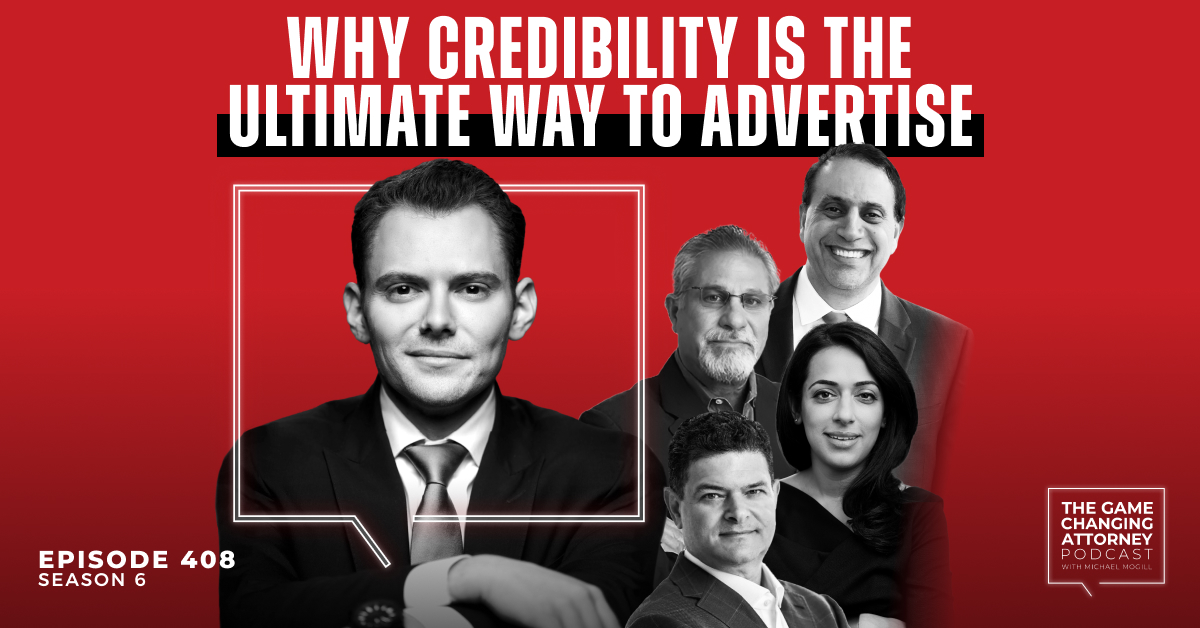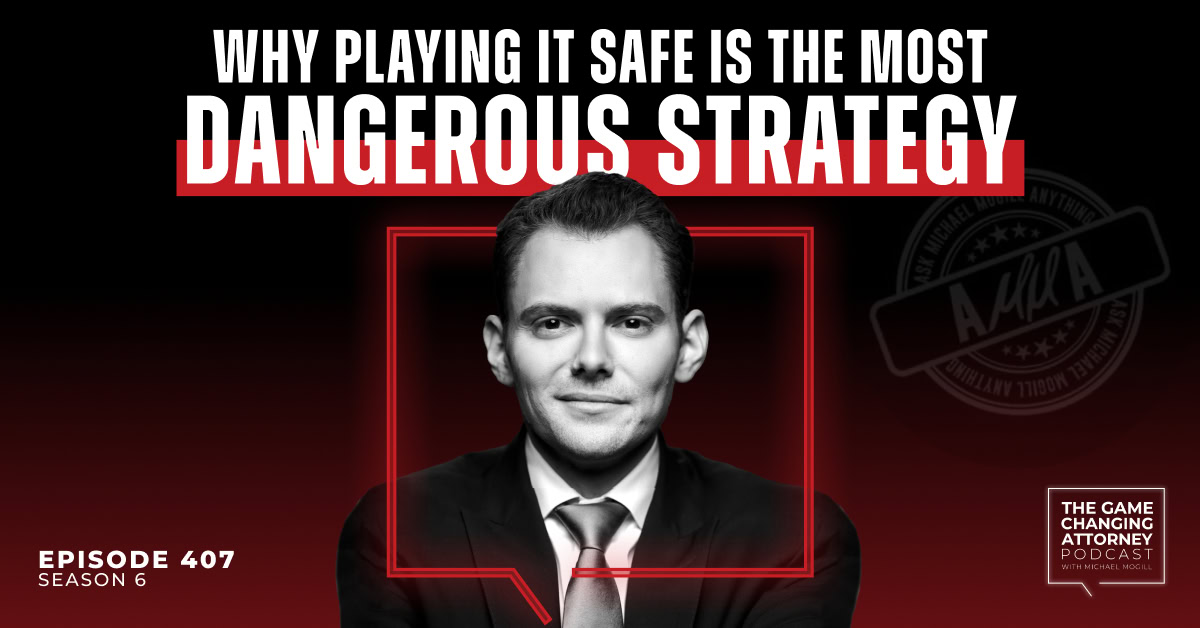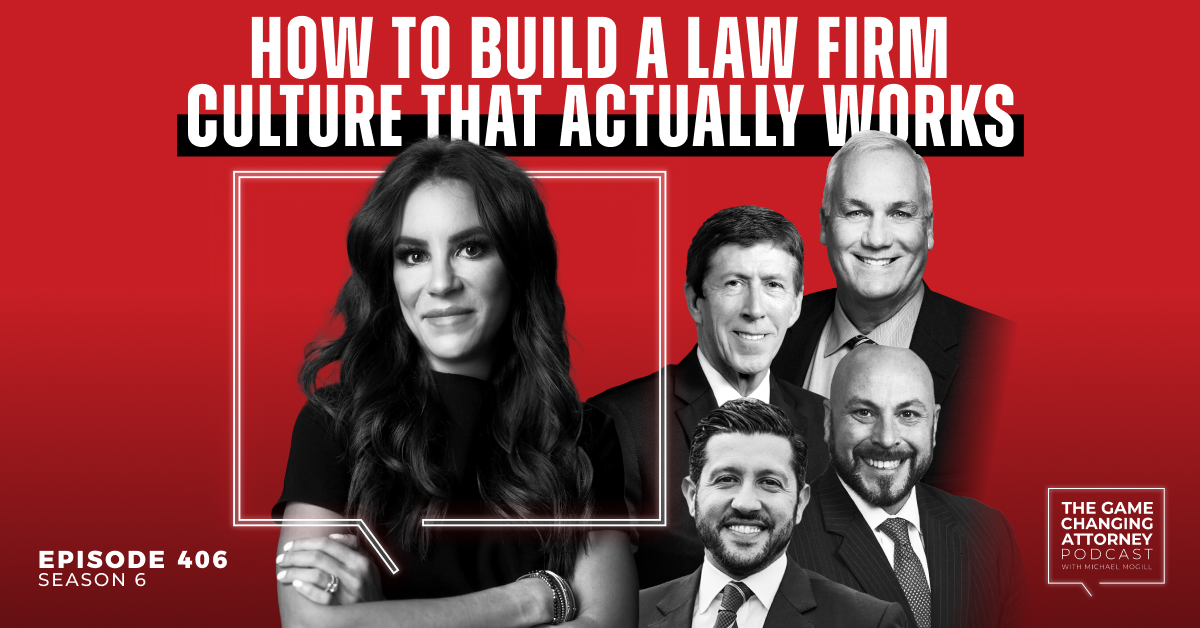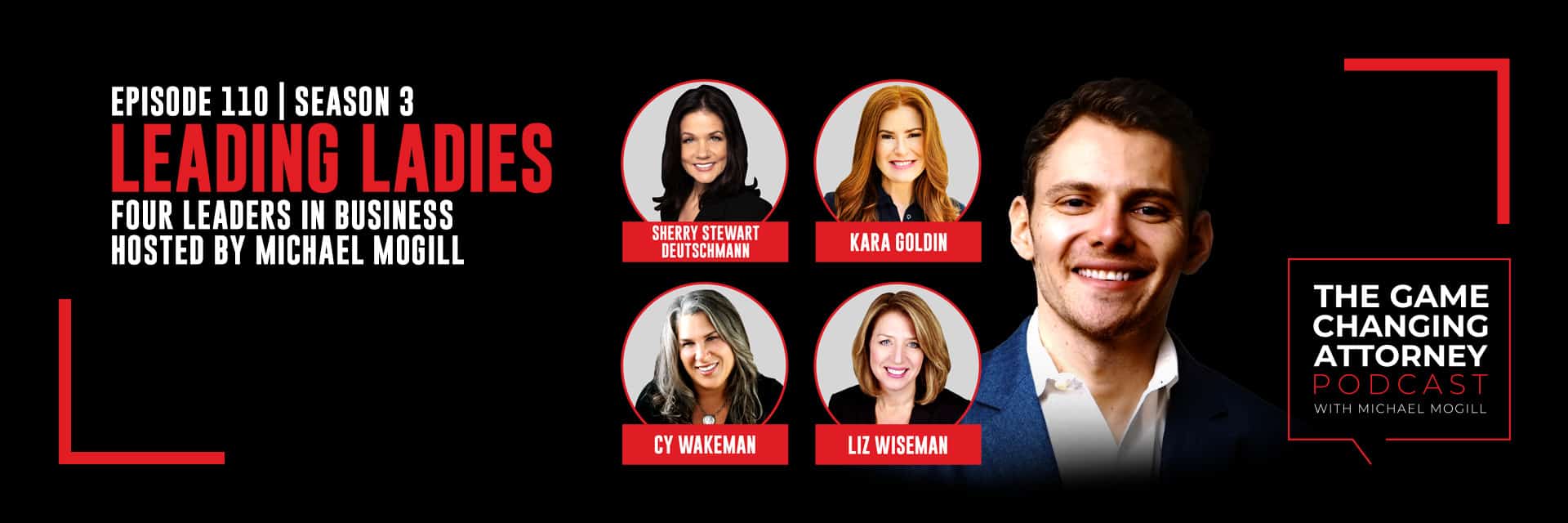
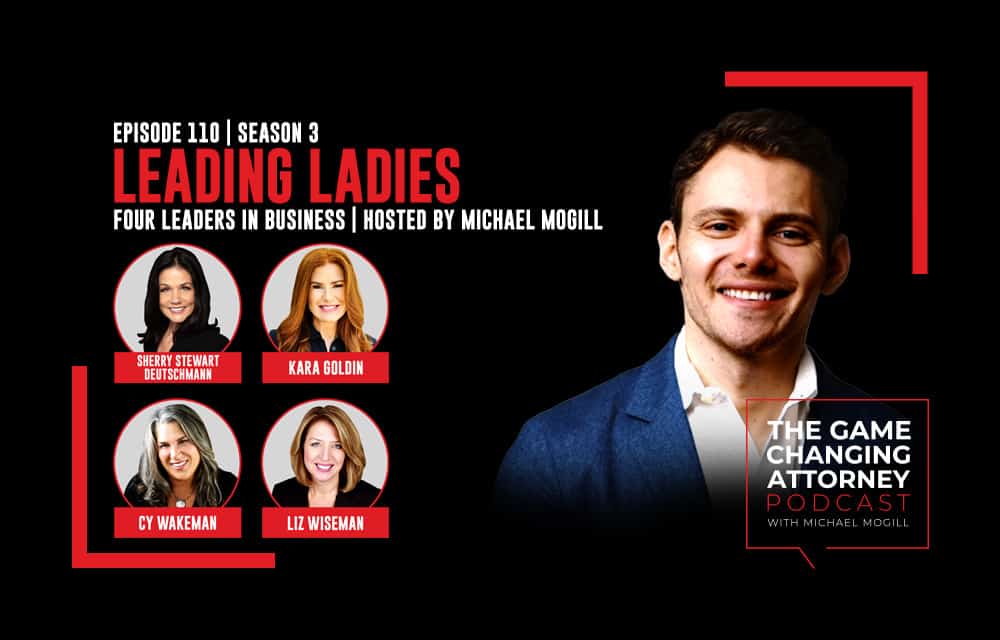
Episode 110 — Leading Ladies: Four Leaders in Business
Starting your own company is hard no matter who you are — but in the predominantly male-dominated business world, being a woman and starting your own company is an entirely different ballgame. Thankfully, millions of women all over the world are making their mark and pioneering with some game changing organizations.
In this special episode of The Game Changing Attorney Podcast, we’re bringing together four leading ladies who have created some incredible enterprises of their own:
- Sherry Stewart Deutschmann: serial entrepreneur, speaker, and author of Lunch With Lucy: Maximize Your Profits By Investing In Your People
- Cy Wakeman: highly acclaimed workplace drama expert, leadership & team culture consultant, and New York Times best-selling author
- Kara Goldin: founder of Hint Water and author of Undaunted: Overcoming Doubts and Doubters
- Liz Wiseman: management researcher, executive advisor, and New York Times best-selling author
These ladies’ stories are nothing short of amazing and inspiring. No matter who you are, you’ll learn something valuable from them.
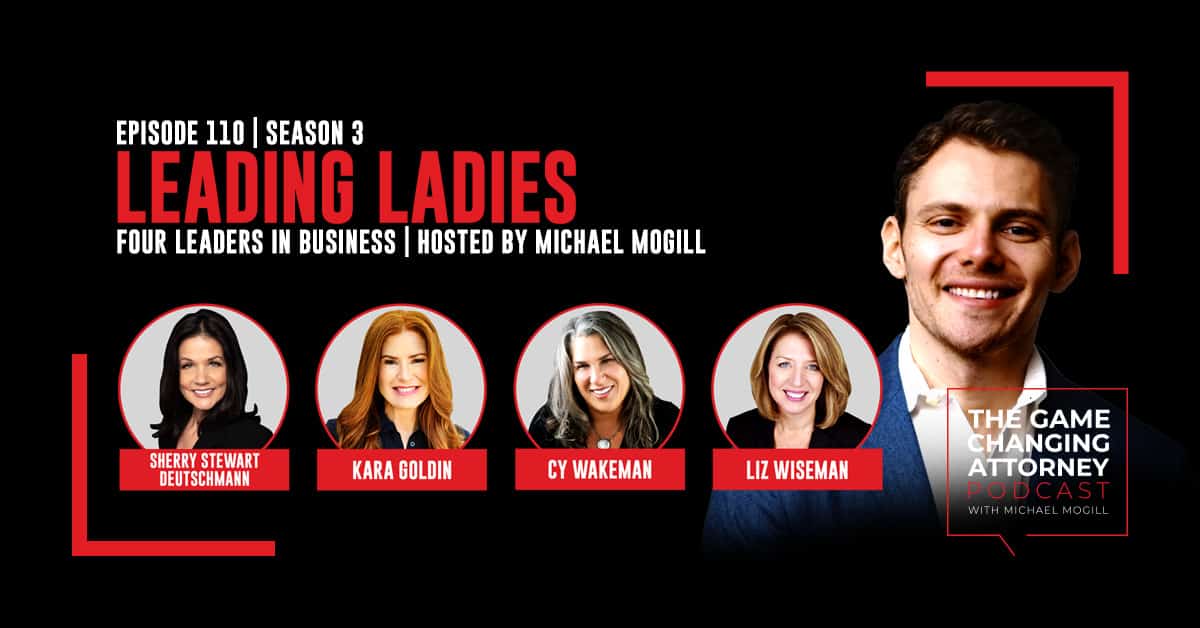
Listen & Subscribe
Show Notes:
Sherry Stewart Deutschmann
Humble beginnings. “In those early years, being a single mom in a strange town really set me up to be a much more empathetic leader later. I cared a lot more about the personal situation of the employees. That’s largely because oftentimes I would be sitting there working for this company and unable to concentrate on work because I was literally counting pennies to buy gas to go in my tank so that I could get home to a hot apartment — I didn’t have AC. So, it was pretty tough times in the early years.”
Your team matters. “I’ve often told people that my company wasn’t successful in spite of all the crazy things that I did to take care of my employees. It was only successful because of those things. I try to get entrepreneurs to think about taking care of their employees as an investment, not an expense. It’s an investment that will actually absolutely produce the greatest ROI of any investment you’ll make on your business.”
What do leaders need? “Empathy. Absolutely, the ability to put yourself in the shoes of the people who work for you or your clients — to be able to see the world through their lens, through their circumstances. That will help you make better decisions for the employees and for the customers. I think empathy is the most undervalued trait in leadership these days. But after empathy, I think authenticity — just being real with people, removing all of the masks and what people think of us, and letting them know who we really are and getting to see who they really are.”
Be yourself, no matter what. “I had a mentor once who advised me to stop telling people that I didn’t have a college education. She said they don’t need to know that, and I want you to quit doing it. I tried that for a while, and I felt that telling other entrepreneurs or other wannabe entrepreneurs, ‘Don’t let a lack of education hold you back. Look at what I’ve done without it,’ was providing a lot more value to the world. It broke down barriers before they could even start.”
Cy Wakeman
Don’t be a drama queen. “Drama basically is the funky name for what we call emotional waste. Emotional waste is any energy that’s taken away from results or happiness (i.e. engagement) at work. So when you think about it, it’s disruptive behavior, which is usually stemming from unproductive thinking.”
Accountability check. “We have 90 days of probation, and if you can’t live up to your interview, we’ll either extend it or my company will just say, ‘You know, we’re going to be testing you and you’re going to be testing us in 90 days.’ And that’s tricky. A lot of people say, ‘Well, nobody’s going to risk coming to you if they know they could lose their job in 90 days.’ Oh yeah? High accountables will because high accountables have nothing to fear.”
People love a challenge. “If leaders are going to coach, they need to ask questions instead of just giving feedback. What did you observe? How do you want to change your approach? What do you hope to improve in your skill set? You’ve got to give your people challenges if you want them to succeed and have accountability.”
Fix or accept. “The Dalai Lama I think said that best. He said, ‘If you’re suffering, there’s really only two ways forward because all suffering is needless.’ Right? If it is fixable, fix it. If it’s not, own it, accept it, and just know it’s part of your reality. But most of us want the third option. We don’t want to fix it. We don’t want to own it. We want to vent about it — and that is the lowest level of accountability a leader in an organization can be in.”
Kara Goldin
What could I have done? “The answer: you’ve got options. When you don’t have lots of clients or competitors, or you’re putting all your eggs in one basket, then those surprises end up being detrimental to your company. That’s the key thing that I’ve learned along the way. When you don’t have options, that’s when you feel like they’ve got you by the throat, which causes you to make bad decisions in order to stay alive.”
Light at the end of the tunnel. “The key thing is to know that dark days don’t last forever. You have to be open to what’s coming next. In so many situations you can say you didn’t see it coming, where you feel blindsided — but often, we don’t see the light coming. I know that the light is even brighter because I had a dark moment.”
A family business. “What [my husband] realized was that this mission and this passion to help people and change society for the better was something that he really believed. He’s the son of a doctor who really believed that health was something that, if you didn’t have it, no matter how much money you had, what your gender was, where you lived, the world was hard…We both really appreciate each other’s skill sets.”
You miss 100% of the shots you don’t take. “[It’s important to look] back at how far we’ve come — every day. Remembering the days of getting that first bottle on the shelf, remembering letters and phone conversations with consumers, and remembering employees who have supported me for all these years to build on this dream. To see it be the level that it is today is just awesome. I never even imagined getting to a million dollars in sales, much less a quarter of a billion. You can’t achieve anything unless you start.”
Liz Wiseman
The “it” factor. “An impact player is a talented standout contributor who raises the level of play for the whole team. I started this research with the assumption that this extends to the work world. If you ask any manager who their impact players are, they will tell you. Those names come to mind very quickly, and sometimes they don’t even really know why — there’s just something about those people. I want to know what makes those people different and what makes them tick.”
MVTeam. “It behooves managers and business owners to find the impact players out in the workforce and bring them into their organizations to see if they can raise the playing level for the whole team as well. How do you build an entire team of impact players? Unlike the concept of an MVP where there’s only one person involved, it’s possible to build an entire team that is thinking and working in the same way.”
One step ahead. “Bosses don’t want someone who waits to be told what to do. They don’t want attendance — they want people who are anticipating problems. In fact, the number one thing that bosses tend to appreciate most is doing things without being asked. They want people who aren’t just loyal followers, but rather people who take on a deputy role or are even a little bossy.”
Always be improving. “Look for micro-feedback when you can. Don’t just wait for annual performance reviews or something big like that. Ask what you can do that will help you perform better in general or how you can help make the work flow more smoothly. If you want people to step up and lead but also step back and follow others, show your team how to do that.”
RESOURCES & REFERENCES
Southwest Airlines
Hint Water
Coca-Cola
Diet Coke
Google
Facebook
Starbucks
Tesla
Connect with Michael
- Text directly at 404-531-7691
